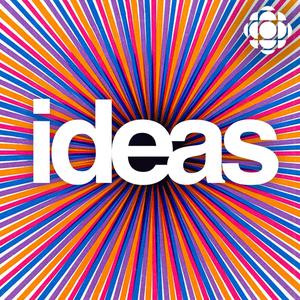
Ideas
CBC
IDEAS is a deep-dive into contemporary thought and intellectual history. No topic is off-limits. In the age of clickbait and superficial headlines, it's for people who like to think.
- 54 minutes 8 secondsWhat the Next 50 Years of Investigative Journalism Might Look Like
CBC's investigative documentary program, The Fifth Estate, turned 50 this year. To commemorate this golden anniversary, a panel of distinguished journalists take us behind the stories and to the current threats facing their profession. As the media landscape continues to shrink, who will hold the powerful to account?
20 December 2024, 1:10 pm - 54 minutes 8 secondsImprisoned Syrian Wrote Poetry Imagining the Fall of the Regime. Now it's Come True
For 14 years, Syrian poet Faraj Bayrakdar was imprisoned and tortured in a series of prisons. He found refuge in writing poetry. Now, the poems he wrote imagining the fall of the regime are a reality. He tells host Nahlah Ayed how the freedom within is greater than any prison.
19 December 2024, 1:10 pm - 54 minutes 8 secondsManuscript Used to Eradicate Andean Thought is Now Key to Revitalizing it
The Huarochirí Manuscript is one of the few surviving records of Quechua worldviews in the early modern era. It was once used by the Catholic Church to identify and eradicate “idolatries.” But today, for philosophy professor Jorge Sanchez-Perez, the manuscript is a tool for reconstructing and revitalizing Andean metaphysics. *This episode originally aired on Feb. 6, 2023.
18 December 2024, 1:10 pm - 54 minutes 8 secondsThe 2024 Killam Prize Honours Canada’s University Researchers (Part 2)
Each year, a cohort of scholars with research careers of "sustained excellence" are honoured with the Killam Prize — seen by some as Canada's version of the Nobel. IDEAS hears from Engineering winner Clement Gosselin, who has developed an innovative robotic arm. Natural Sciences laureate Sylvain Moineau is making breakthroughs using basic science research, and Medical Sciences winner Gerard Wright fights the growing global threat posed by antibiotic resistance. (2 of 2)
17 December 2024, 1:10 pm - 54 minutes 7 secondsThere's No Place Like Home: Humanity and the Housing Crisis
Our homes hold our memories and hopes for the future. But today, our homes have become commodities. Leilani Farha, the former UN Special Rapporteur on the Right to Housing, considers what happens when humanity is stripped out of housing — and what it means for us to collectively ‘return home.’ *This episode is part of our IDEAS at Crow’s Theatre series.
16 December 2024, 1:10 pm - 54 minutes 8 secondsHawkeye's Army: The War Metaphor in Medicine
We think nothing today of calling healthcare workers “front line workers,” engaged in a “battle” against disease. But the roots of the war metaphor in medicine go way back — entrenched by pop culture icons like the TV show M*A*S*H and Hawkeye’s army. Dr. Jillian Horton explores a less heroic but healthier way forward for doctors and health professionals. *This episode originally aired on Feb. 21, 2023.
13 December 2024, 1:10 pm - 54 minutes 7 secondsWhat Should Cities of the Future Look Like?
Right now, more than 55% of the world's population live in cities. In a few decades, that percentage will rise to 70%. But with rising sea levels and mass migration, not to mention the state of geopolitics, where does all this leave cities of the future? Three experts weigh in.
12 December 2024, 1:10 pm - 54 minutes 8 secondsFighting for Climate Justice in The Hague: Payam Akhavan
It's the world's most prominent climate case in history. Iranian-Canadian human rights lawyer Payam Akhavan discusses the legal arguments he made before the International Court of Justice (ICJ) on behalf of Bangladesh and small island states. The hearings seek to establish the legal obligations of states to mitigate climate change and the damage done by it — and the legal consequences for states which don’t fulfil those obligations.
11 December 2024, 1:10 pm - 54 minutes 7 secondsNon-Aligned News: The Future of Non-Western Media, Part Two
In part two of our series about the 1970s journalistic experiment known as the Non-Aligned News Agencies Pool, IDEAS turns to journalists who continue to grapple with the challenges that were first highlighted more than five decades ago. Their concerns and critiques about representation and fairness at the heart of those conversations persist in newsrooms today.
10 December 2024, 1:10 pm - 54 minutes 7 secondsNon-Aligned News: A Journalistic Experiment to Decolonize Global News
In the 1970s, countries in what became known as the Non-Aligned Movement (NAM) embarked on an ambitious journalistic experiment to create a new kind of journalism — decolonizing the flow of information. The project came with a utopian promise, internal tensions and fierce opponents in the West. IDEAS explores its history and afterlife today in a two-part series.
9 December 2024, 1:10 pm - 54 minutes 8 secondsFate Is the Hunter: Ernest K. Gann's Great Fortune
IDEAS takes a deep dive into Fate Is the Hunter, Ernest K. Gann's celebrated memoir of flying and the capricious hand of fortune. The book is a nail-biting account of his early days in aviation. Gann wonders: why did I survive when so many other pilots perished? *This episode originally aired on Nov. 28, 2022.
6 December 2024, 1:10 pm - More Episodes? Get the App
Your feedback is valuable to us. Should you encounter any bugs, glitches, lack of functionality or other problems, please email us on [email protected] or join Moon.FM Telegram Group where you can talk directly to the dev team who are happy to answer any queries.
 Front Burner
Front Burner
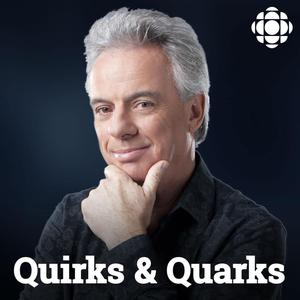 Quirks and Quarks
Quirks and Quarks
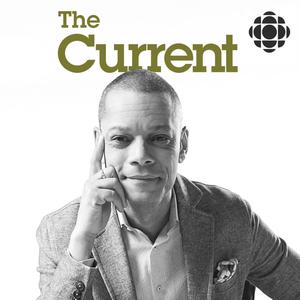 The Current
The Current
 Tapestry from CBC Radio
Tapestry from CBC Radio
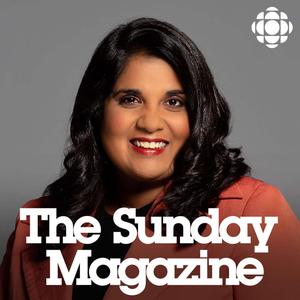 The Sunday Magazine
The Sunday Magazine
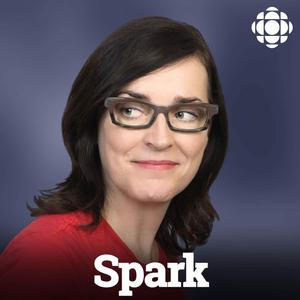 Spark
Spark